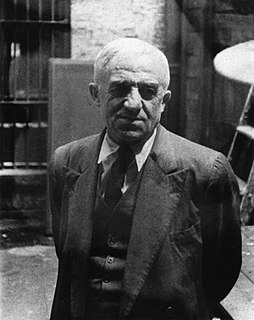A Quote by Beth Hart
'St. Teresa' is one of my favorites. It reminds me of the importance of grace.
Related Quotes
Jesus is the mediator of justice; Mary obtains for us grace; for, as St. Bernard, St. Bonaventure, St. Bernardine of Siena, St. Germanus, St. Antoninus, and others say, it is the will of God to dispense through the hands of Mary whatever graces he is pleased to bestow upon us. With God, the prayers of the saints are the prayers of His friends, but the prayers of Mary are the prayers of His mother.
I find that many Christians are in trouble about the future; they think they will not have grace enough to die by. It is much more important that we should have grace enough to live by. It seems to me that death is of very little importance in the meantime. When the dying hour comes, there will be dying grace; but you do not require dying grace to live by.
In the tradition of Julian of Norwich and St. Teresa of Avila and all the other mystics, we can learn to render ourselves vulnerable to the "favors of God" - those indescribable experiences that mock our dualisms and so saturate our imagination with abundance that they transcend our ability to convey joy and wonder. In the tradition of St. John of the Cross, we can learn to survive and derive benefits from the soul's dark night.
I am happy that we are not favorites. To be very honest it's big pressure of being favorites. We were not favorites last time (in 2011) too but we played excellent cricket. Similarly this time, there are teams which play on those bouncy wickets like Australia and South Africa, and are probably bigger favorites than us. But we hope that with the type of resources we have we can do well.
It is grace at the beginning, and grace at the end. So that when you and I come to lie upon our death beds, the one thing that should comfort and help and strengthen us there is the thing that helped us in the beginning. Not what we have been, not what we have done, but the Grace of God in Jesus Christ our Lord. The Christian life starts with grace, it must continue with grace, it ends with grace. Grace wondrous grace. By the grace of God I am what I am. Yet not I, but the Grace of God which was with me.



































